Laser Cut Jack O Lantern
by PrimaryMorse in Workshop > Laser Cutting
32583 Views, 114 Favorites, 0 Comments
Laser Cut Jack O Lantern
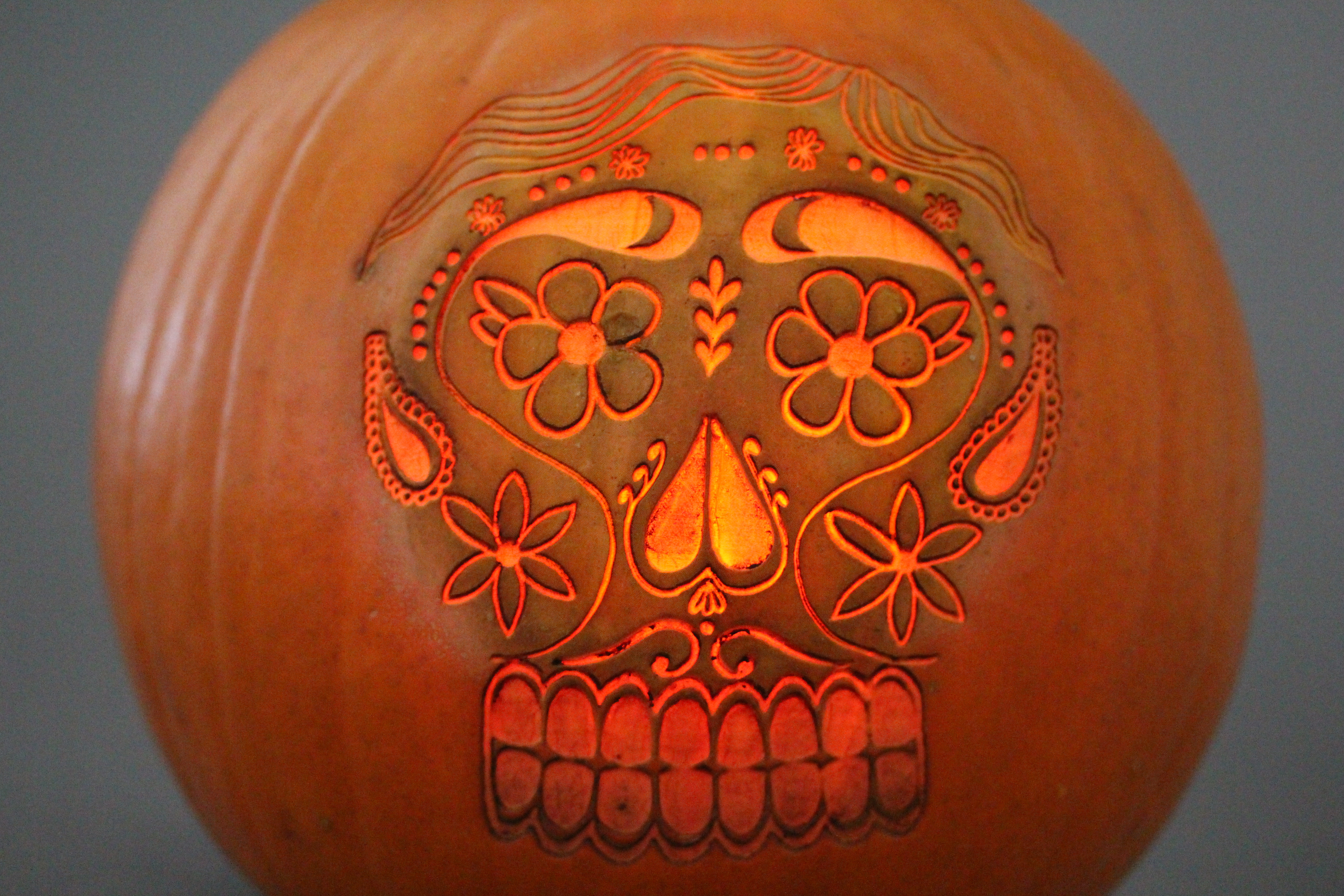
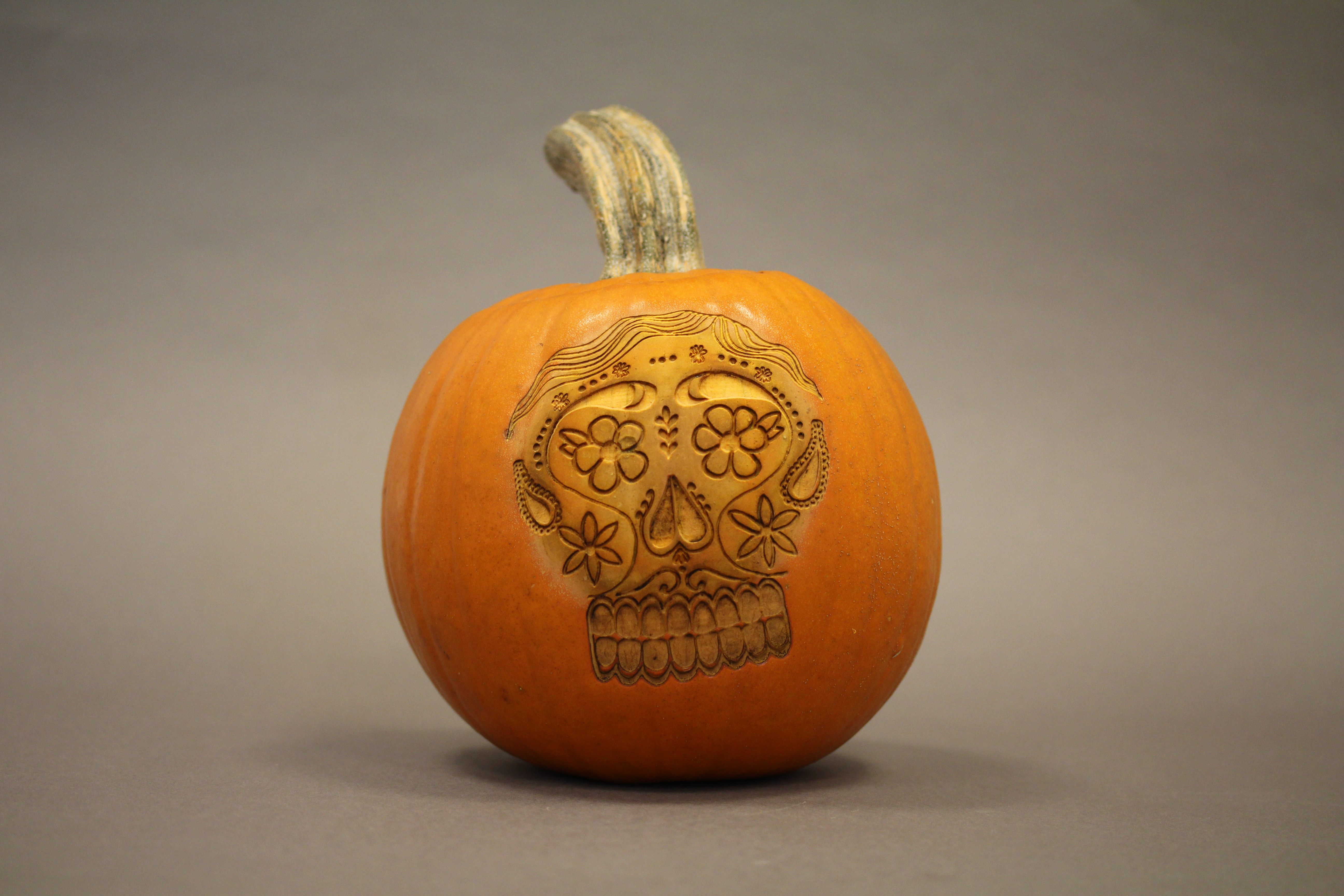
This fall, you can blow all of your friends away by carving pumpkins with lasers.
Supplies
2 pumpkins - roughly 6 - 8" diameter
Knife
Spoon - or something else to scoop out pumpkin insides
Cardboard
Laser Cutter - I used a 60 watt Epilog Helix machine
Knife
Spoon - or something else to scoop out pumpkin insides
Cardboard
Laser Cutter - I used a 60 watt Epilog Helix machine
Choose an Image
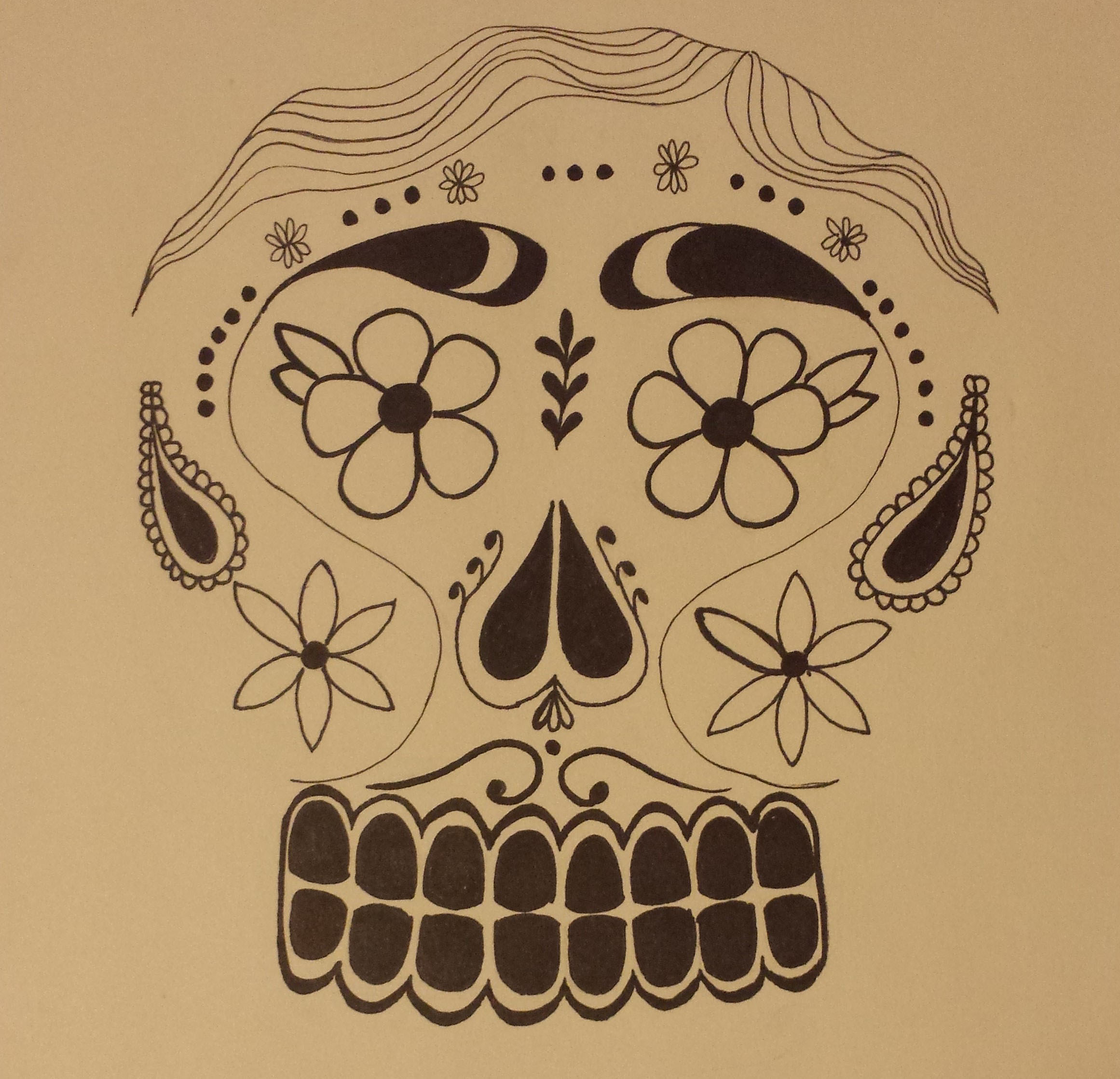
Choose a vector or bitmap image to laser cut onto your pumpkin. I drew mine by hand and scanned it in to the computer.
Clean Out the Pumpkins
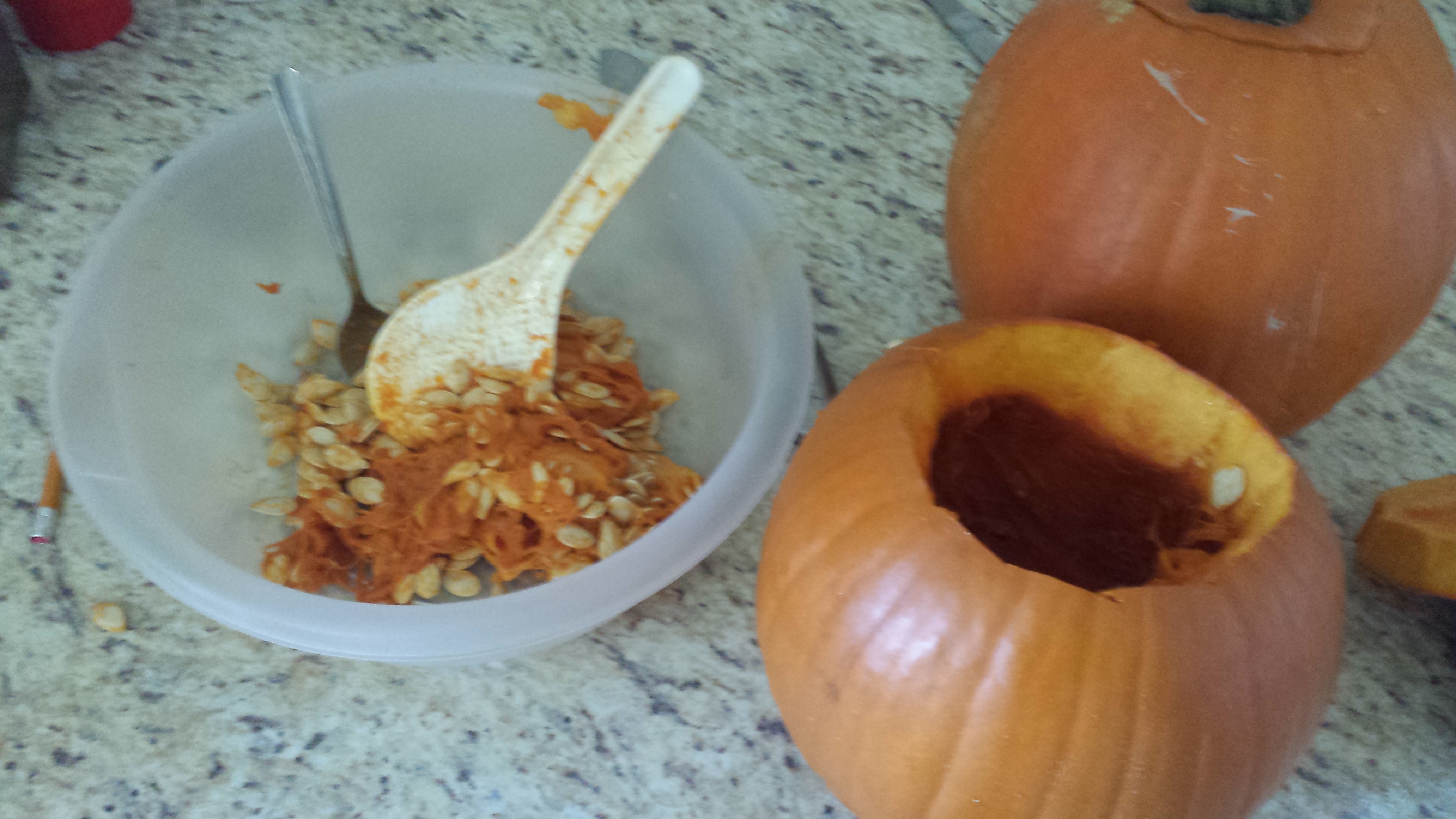
Using your knife, cut a hole in the top of your pumpkin.
Use your spoon to scoop out the insides into a bowl.
In this step, it may also be helpful to scrape away some of the meat of the pumpkin to make the walls thinner. It will be faster and easier to cut through a thin pumpkin shell.
Use your spoon to scoop out the insides into a bowl.
In this step, it may also be helpful to scrape away some of the meat of the pumpkin to make the walls thinner. It will be faster and easier to cut through a thin pumpkin shell.
Build a Jig
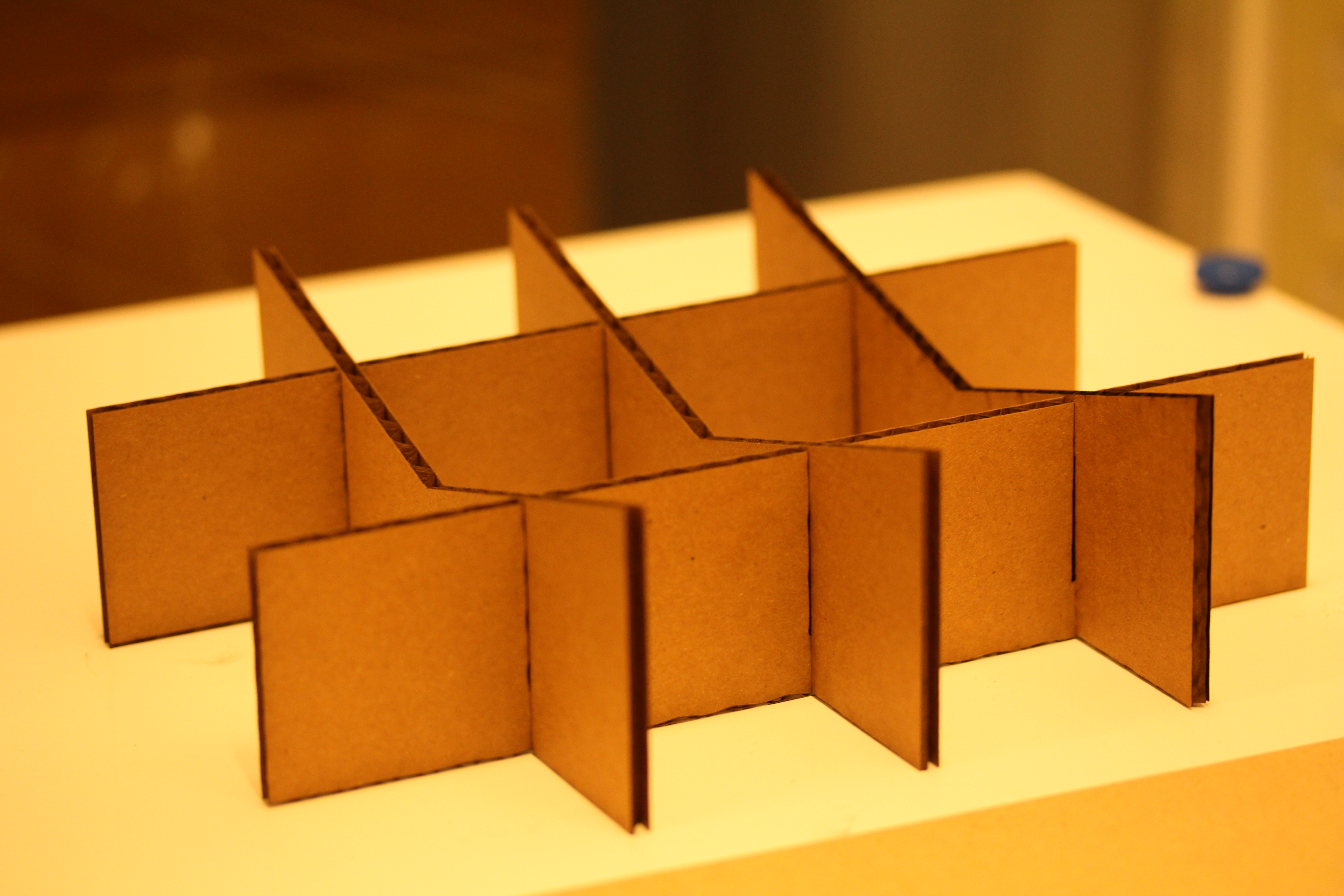
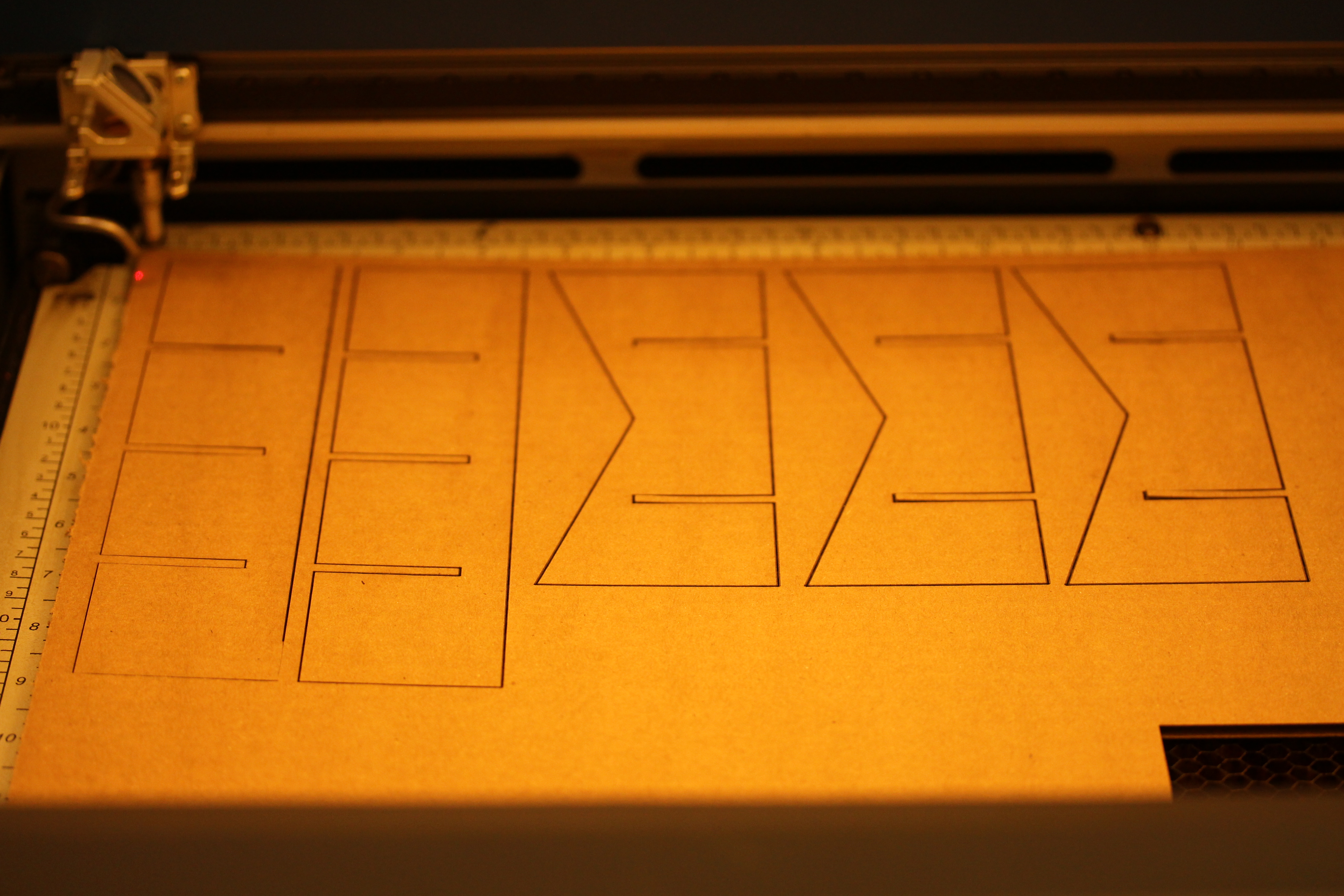
The pumpkin will not sit flat on the bed of the laser cutter. I found that a simple v-shape was enough to keep the pumpkin in place. I laser cut mine out of some cardboard that was laying around.
Testing, Testing...
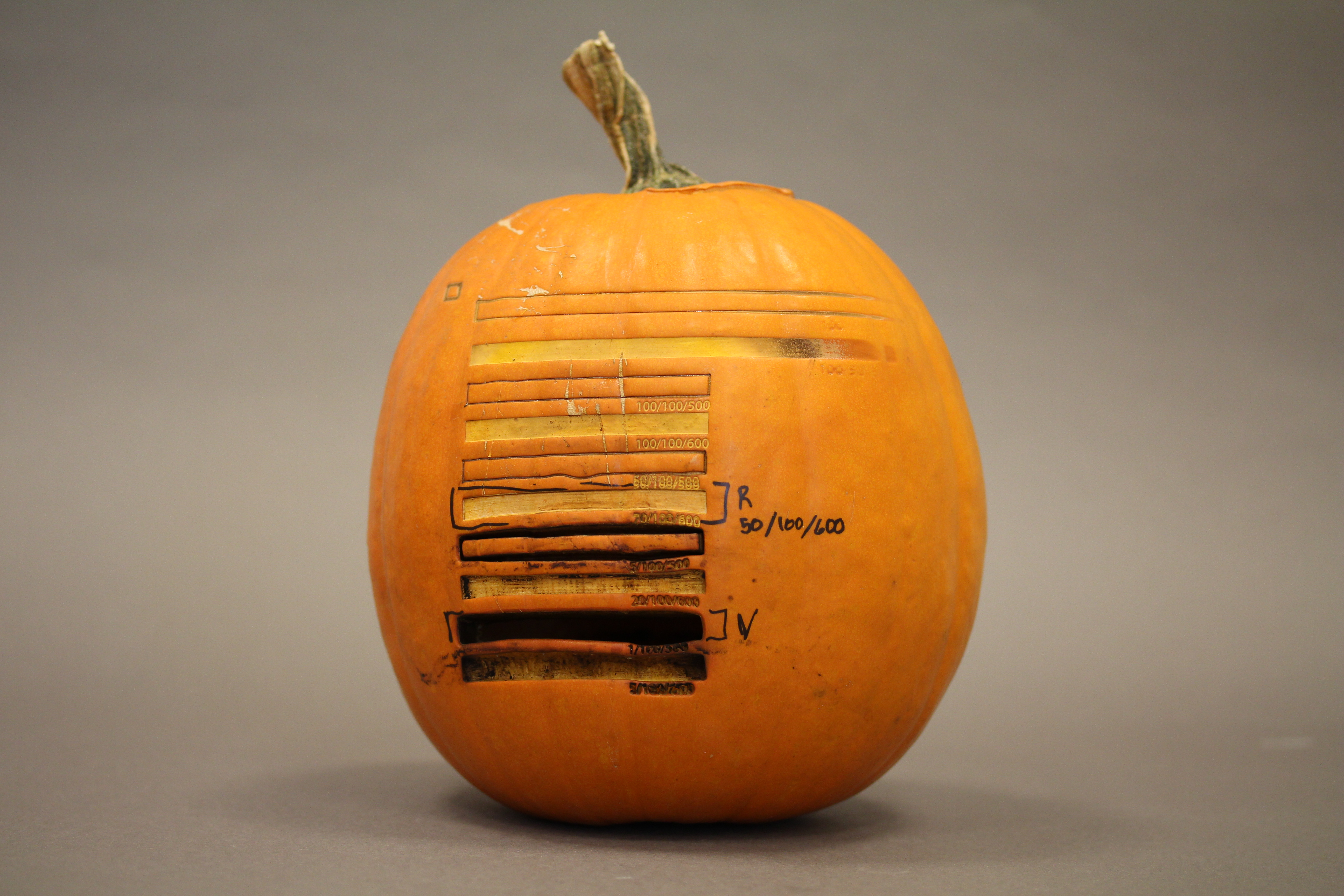
Before you laser cut your design onto the pumpkin, you need to know what settings to use on the laser cutter. You will have to experiment because each laser is different.
I recommend using long thin boxes to test various vector and raster settings. The length isn't too important, but you will probably want boxes that go from the edge of the pumpkin to the top of the pumpkin to see the effect of focal distance. The purpose of thin boxes is simply to fit as many setting samples as possible on the pumpkin.
The high water content of the pumpkin increases the energy required to burn through it. As a result, I found that high power and very low speed settings worked best. In the end I was able to cut through about 1" of pumpkin flesh.
I recommend using long thin boxes to test various vector and raster settings. The length isn't too important, but you will probably want boxes that go from the edge of the pumpkin to the top of the pumpkin to see the effect of focal distance. The purpose of thin boxes is simply to fit as many setting samples as possible on the pumpkin.
The high water content of the pumpkin increases the energy required to burn through it. As a result, I found that high power and very low speed settings worked best. In the end I was able to cut through about 1" of pumpkin flesh.
Focus
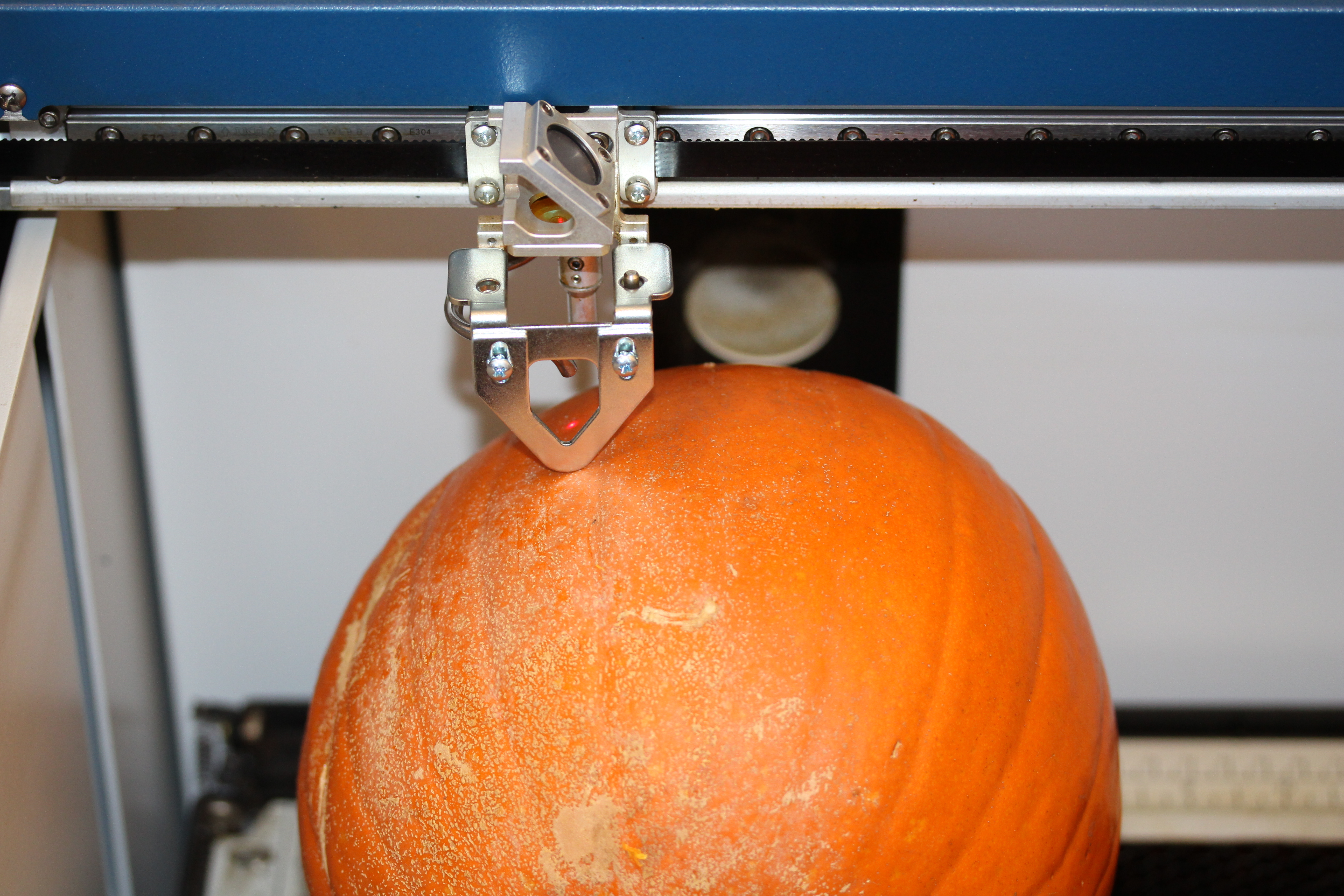
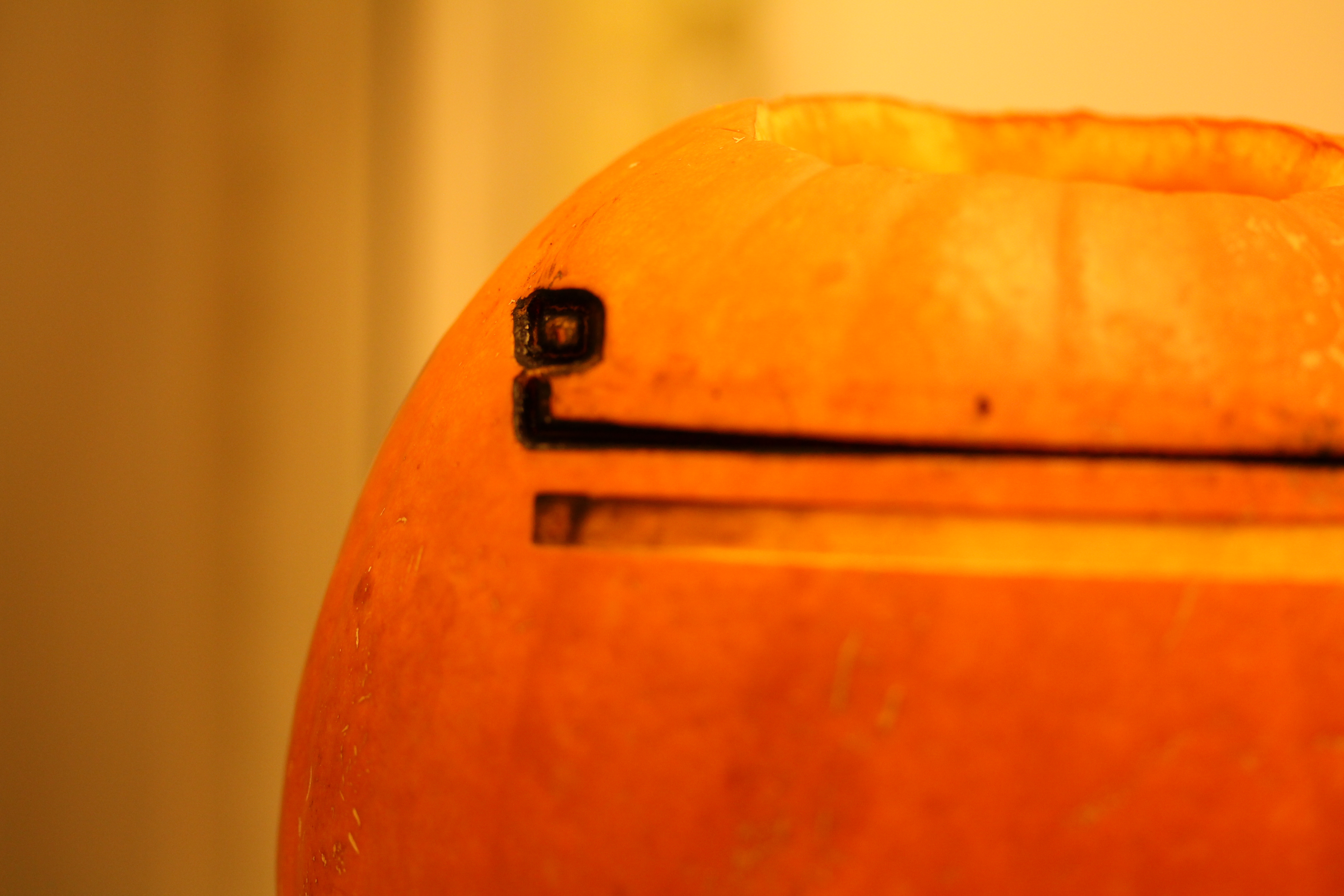
Since the surface of the pumpkin is round, you'll want to focus the laser manually. Be sure to choose a spot that is about halfway between the highest and lowest points in the area which you are cutting.
The second image above shows a vector cut where the laser was focused at the highest point of the pumpkin. This meant that the edges of the pumpkin were about 3" out of focus. You can see that the vector lines became huge at that point, about 1/8" wide.
The second image above shows a vector cut where the laser was focused at the highest point of the pumpkin. This meant that the edges of the pumpkin were about 3" out of focus. You can see that the vector lines became huge at that point, about 1/8" wide.
Cut the Pumpkin
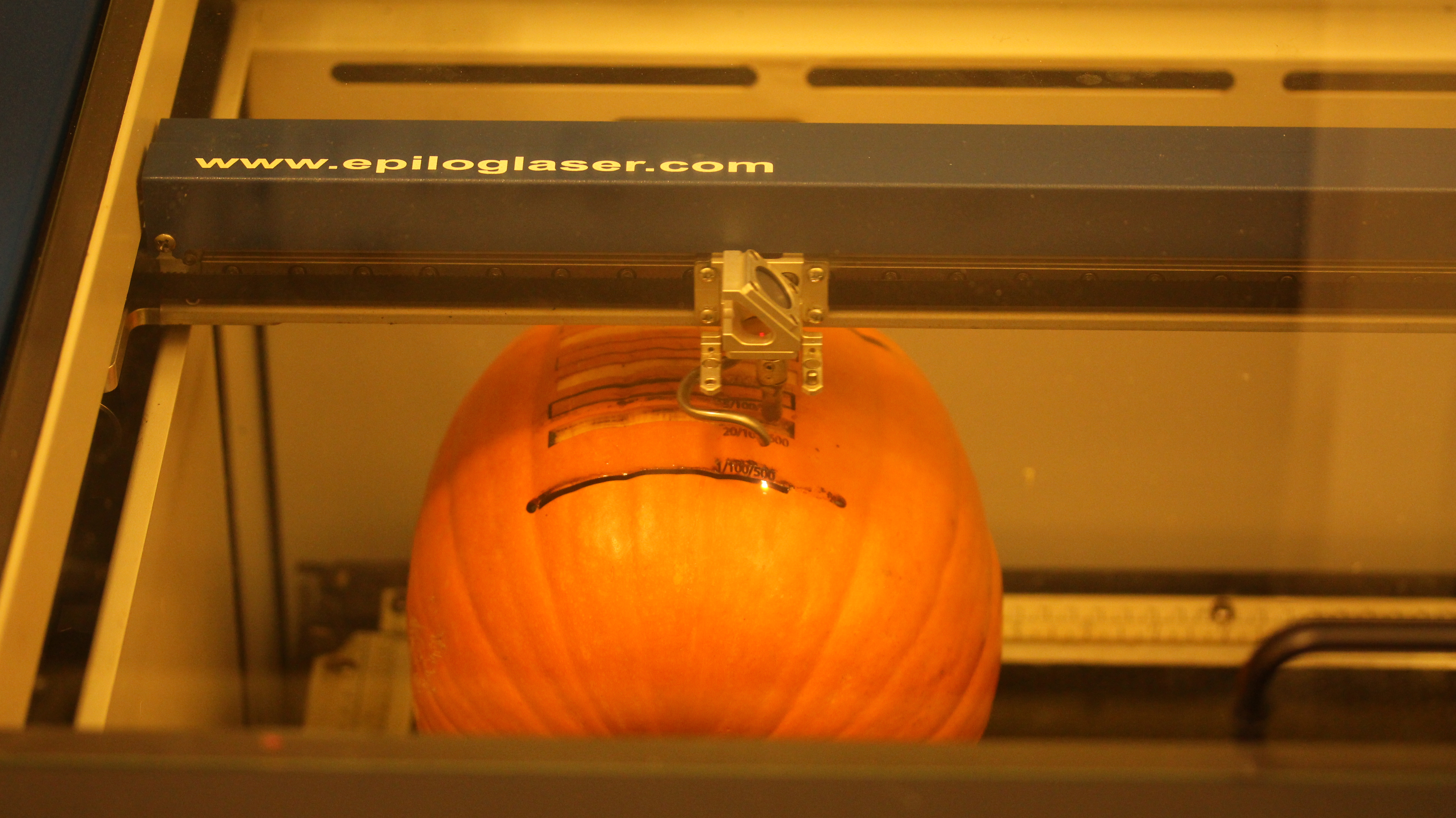
Clean the Pumpkin
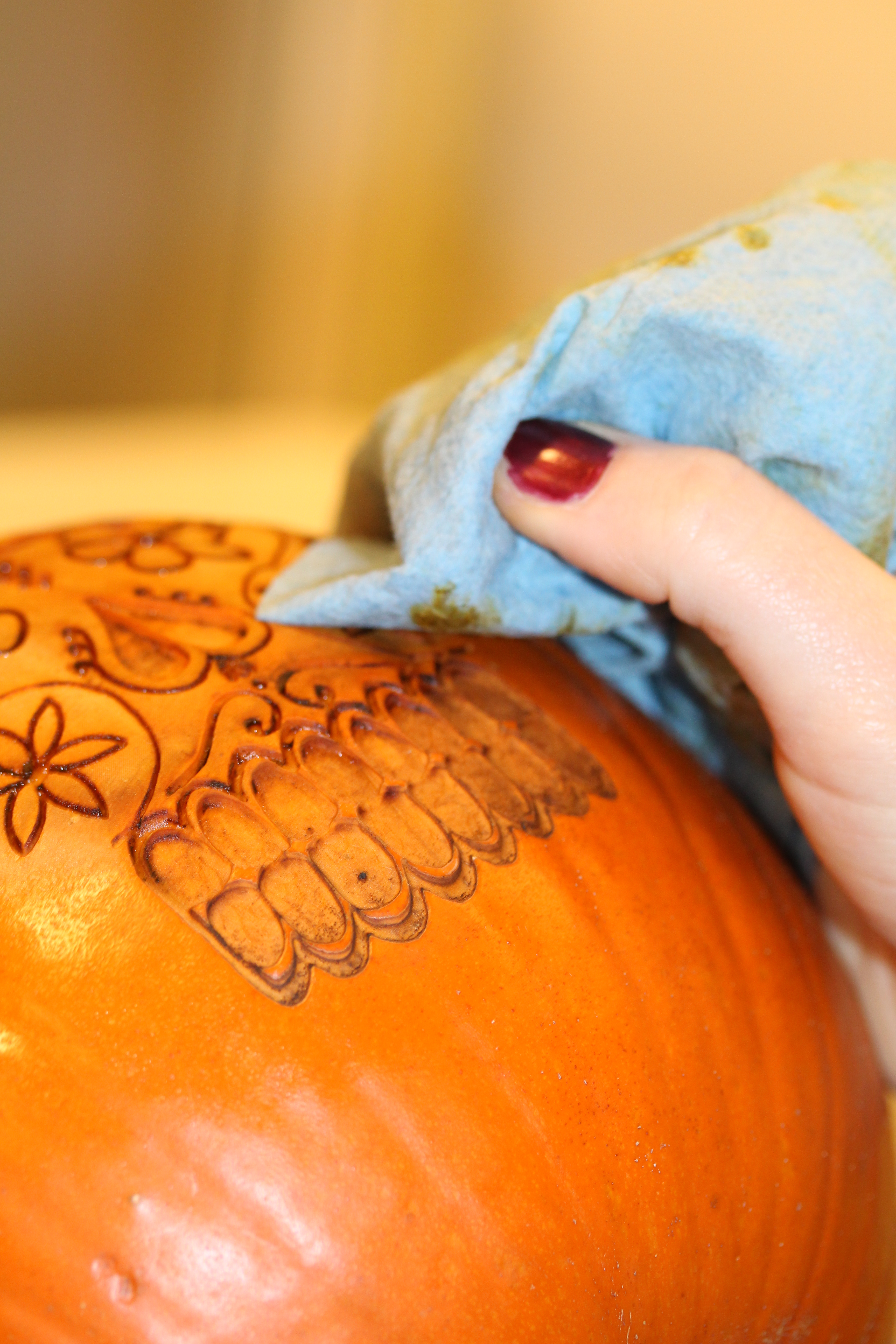
Pumpkins make a lot of black goo when laser cut. If you like that, you can leave it there. Maybe it adds to the scary Halloween effect you are going for. If you don't like that, it wipes off really easily with a wet cloth.
Light It Up!
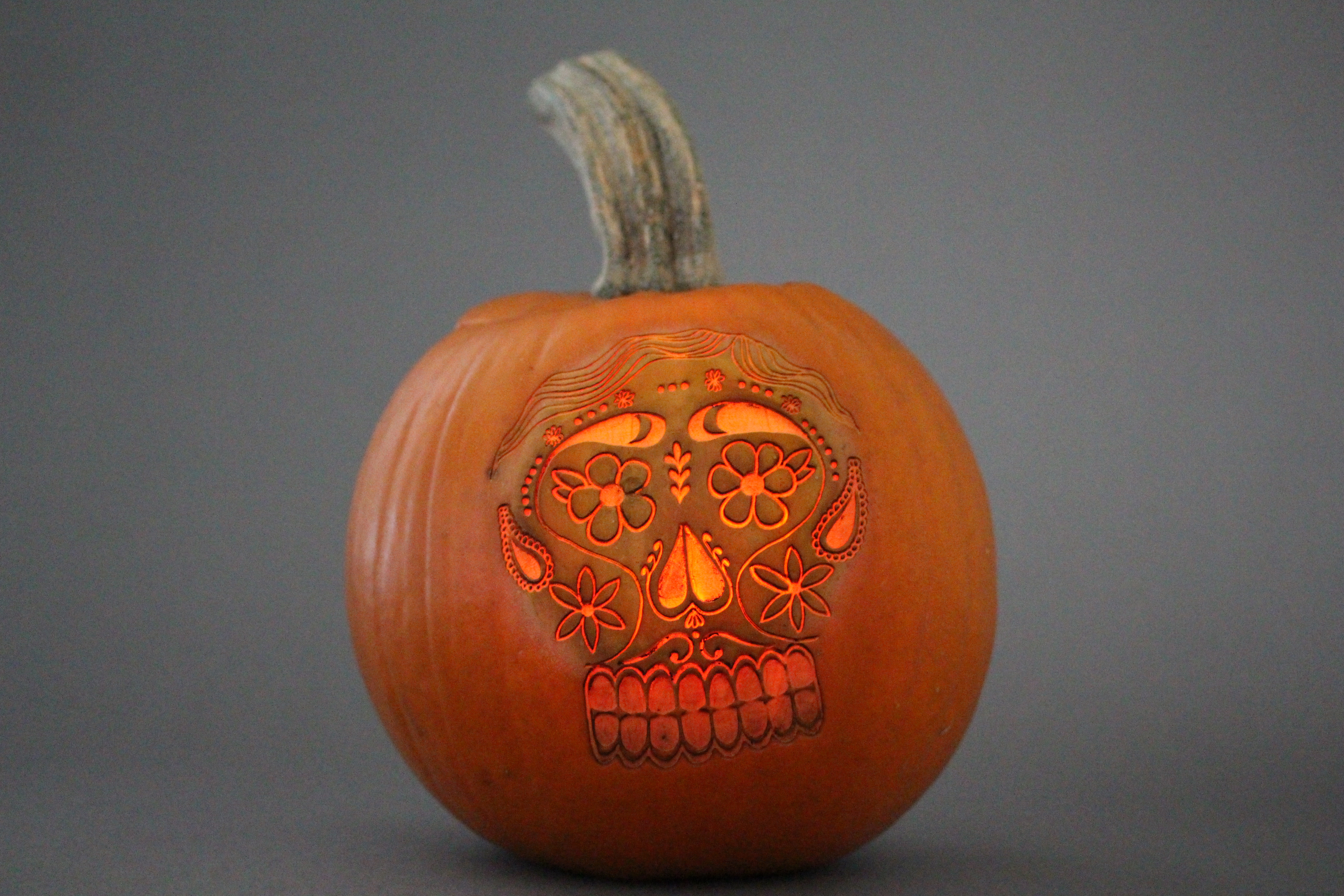
You are finished! Now, go put your pumpkin on display for all to see.